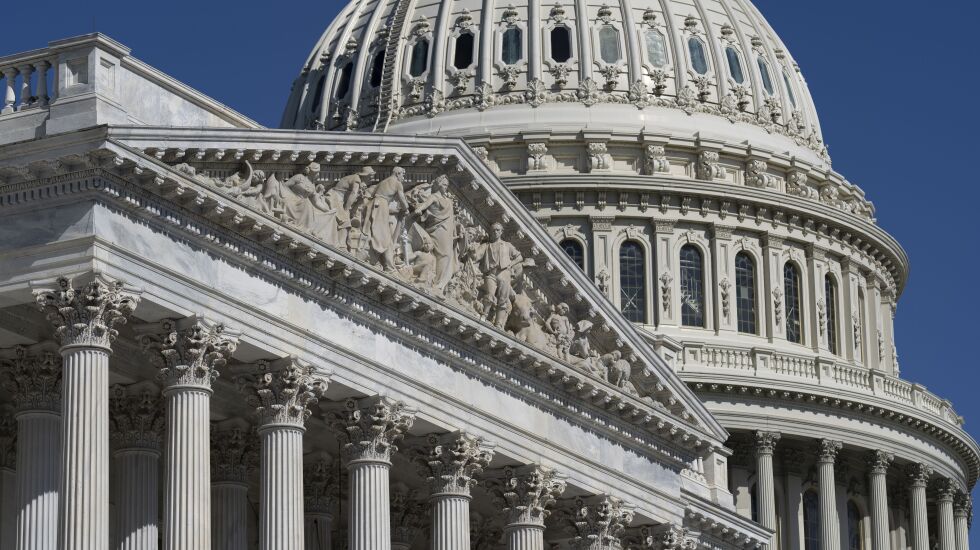
Tech companies are laying off workers at the fastest pace since the dot-com bubble burst over two decades ago. Amazon, Twitter, Netflix, Shopify and Meta have all announced deep cuts. Cumulatively, tech firms have axed 223,000 employees this year, 35% more than 2022’s full year total.
Now, Congress is poised to make the job hunts of those laid-off Americans harder.
A bipartisan duo, U.S. Sen. Dick Durbin (D) of Illinois and U.S. Sen. Mike Rounds (R) of South Dakota, are trying to sneak their Keep STEM Talent Act into the annual, must-pass defense spending bill as an amendment.
If it remains in the final version, the provision could add hundreds of thousands of foreign workers to the U.S. tech labor market, thereby boxing out Americans and driving down wages for everyone.
The provision would exempt foreigners who graduate from American universities with master’s or doctorates in STEM (science, technology, engineering and math) fields from employer-sponsored green-card quotas.
In 2022, over 507,000 foreigners were pursuing master’s degrees in the United States, and more than 197,000 were pursuing doctorates, according to federal data. A majority of foreign students in master’s and doctorate programs study STEM topics.
Not all of those students ultimately graduate, of course. And not all who graduate desire to stay here afterward. Some happily return to their home countries.
But it’s abundantly clear that “stapling a green card to every diploma,” as proponents often put it, would massively increase the number of foreigners competing in the U.S. labor market.
Right now, by law, America allocates 140,000 green cards each year to foreign nationals — across all education levels — who’ve been sponsored by their employers. Most of those foreign employees are already present in the United States on temporary work visas, and they petition to essentially upgrade those temporary visas to green cards, which offer lifetime work and residency privileges (as well as the ability to ultimately apply for citizenship).
In practice, the amendment would abolish that 140,000 annual limit on employment-based green cards, even while it retains the numerical cap in theory. Hundreds of thousands of foreign students, the majority of whom hail from China and India, would understandably leap at the opportunity to work in America, where they can earn salaries many times higher than in their home countries.
The massive influx of workers into the tech labor market would increase competition and drive down wages — it’s simple supply and demand.
In a 2017 working paper published by the National Bureau of Economic Research, economists at the University of Michigan and University of California San Diego found that “wages for U.S. computer scientists would have been 2.6% to 5.1% higher and employment in computer science for U.S. workers would have been 6.1% to 10.8% higher in 2001” if not for the H-1B visa program that, beginning in the early 1990s, enabled tech companies to import tens of thousands of cheaper foreign workers with college degrees each year.
Big tech executives, and their lobbyists, have long claimed that America suffers from a shortage of STEM workers and that immigration is critical for plugging the gap.
But America actually graduates about 50% more STEM-degree holders than STEM industries hire each year. That explains why only about half of STEM graduates actually find work in a STEM job.
American tech workers — while not exactly downtrodden, objectively speaking — are facing the worst industry slump in decades. There’s no reason for Congress to kick them while they’re down by importing more foreign competition.
Paul Nachman, a retired physicist, is a founding member of Montanans for Immigration Law Enforcement.
The Sun-Times welcomes letters to the editor and op-eds. See our guidelines.
The views and opinions expressed by contributors are their own and do not necessarily reflect those of the Chicago Sun-Times or any of its affiliates.







